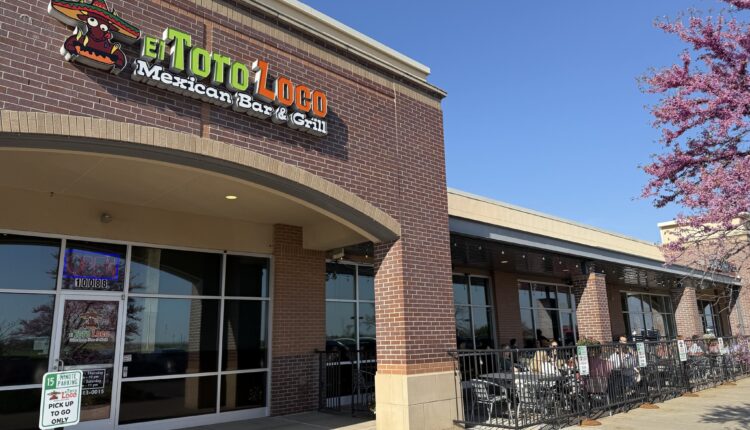«I just prayed they wouldn’t see me»: ICE raid at Kansas restaurant
At 9:20 in the morning, Terry arrived, as usual, at the restaurant where he works — El Toro Loco Mexican Bar and Grill restaurant, in Lenexa, Kansas. He entered through the back door, like he always does. He had no idea that day would turn into a nightmare.
When he arrived, he noticed something odd: a dark Chevrolet Malibu with tinted windows was parked on the corner of the restaurant. One of his coworkers, the kitchen supervisor, asked if he had seen the car. He responded, “Yes, it looks a bit suspicious.” His coworker said that the last time ICE came for someone, they arrived in cars like that.
They were ICE agents, but they didn’t come in the usual official vehicles — large black SUVs. This time, they were undercover. Still, that didn’t stop the restaurant workers from feeling uneasy.
They locked the doors and continued working. There were seven employees present. At 11:00 a.m., just as they were preparing to start the workday, the ICE agents entered. No one knew how they got in. They only heard the commotion, the shouting, and the struggle. They were taking their coworkers.
Terry hid behind a door at the back of the kitchen. “I just prayed,” he said. “I prayed they wouldn’t see me, that they would leave.” They walked past him three times and didn’t see him — until one of the agents pointed a gun at his head. Terry raised his hands. He said nothing; he only wanted them to know he wasn’t armed and that there was no reason to hurt him. They handcuffed him and took him outside. “They sat us on the street, under the sun. Without explanation,” he recounted.
Even a U.S. citizen was handcuffed
In the chaos, the ICE agents didn’t stop to check who was who: a U.S. citizen was also handcuffed. Only after insisting and showing his passport did they let him go.
Terry told them he had asylum, a work permit, and a Social Security number, but the agents didn’t listen. After a while, they checked the system and released him. “They told me I couldn’t stay at the restaurant anymore.” He’s still in shock that they found him in the system, because some of his coworkers were not so lucky.
Four of his coworkers were taken: two Mexican men, a Honduran woman, and another Mexican woman who was the kitchen supervisor. “She had been working there for years. They handcuffed her last. They asked her many questions. When her daughters arrived, she just handed them the restaurant keys.”
Inside the restaurant, everything was a mess. “They threw pots around, opened everything. They were looking for more people,” Terry said. Outside, the silence was thick. No one spoke. “They only said it was a system verification. That if everything checked out, they’d release us,” he recalled.
Trauma and fear
Terry returned home shaking. On the way, he saw a dark car behind him and thought he was being followed. “I nearly crashed from the nerves. I called my wife and told her not to go to work, that I was scared. That if something happened to me, she would be left alone. And that’s what hurt the most.”
He knows what it’s like to be detained. He had already gone through that when he crossed through Texas. “I was imprisoned. Shackled from head to toe. They left me in San Antonio, and from there I came to Kansas.” He now has a court date in 2028. But he doesn’t know what to think anymore. “I feel bad. Very bad. I want to go back to work, but I’m scared. I don’t want to leave the house.”
Terry is from Ecuador. He arrived in April of last year seeking a better life. He works hard, just like his coworkers. When he speaks about them, he only manages to say: “They are all amazing people. The one who trained me in the kitchen always talked about his kids. Showed pictures. Said he did everything for them. And when they were taking him, he said, ‘See you later. And if we don’t meet again, it’ll be some other time.’”
More arrests
The arrests at that restaurant were not the only ones; another restaurant in Kansas was also raided. In total, 12 people were arrested.
Advocates for Immigrant Rights and Reconciliation (AIRR), a group that defends immigrant rights, immediately held a press conference and issued a statement, saying that these raids are part of a pattern of attacks against workers, and that such actions traumatize vulnerable communities. They also noted that no explanation or assistance was provided to those affected.
Rising numbers
According to the Cato Institute, a public policy research organization, “as of June 14, ICE had detained 204,297 people (since October 1, 2024, the start of the 2025 fiscal year). Of those detained, 65% (133,687) had no criminal record. Additionally, over 93% of those detained by ICE had never been convicted of violent crimes. Roughly nine out of ten had no convictions for violent or property crimes. The majority of convictions (53%) fell into three main categories: immigration offenses, traffic violations, and non-violent crimes.”
They also noted that, according to U.S. Customs and Border Protection (CBP) data, which doesn’t include details about criminal convictions, “during the first two weeks of June, ICE detained nearly 927 non-criminal individuals. That’s about triple the rate of non-criminal arrests recorded during the first week of the Trump administration.”
The name Terry was changed for safety and to protect his privacy.
This report was developed by the Te Lo Cuento News team.

